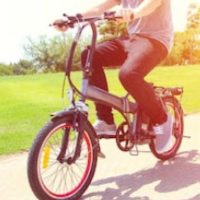How To Prevent Micro-Mobility Accidents & Injuries

E-scooters and e-bikes are becoming more and more popular as alternatives to conventional modes of transportation for short distance travel. Also referred to as “micro-mobility” products, many cities are also seeing an uptick of app-based services that offer e-scooters and e-bikes for rent. Of course, any increase of vehicles on the road increases the risk of accidents, but because micro-mobility products are smaller, more compact and quieter, they are less visible and audible to other drivers. That makes micro-mobility product users even more vulnerable to accidents. In fact, according to a report by the United States Consumer Product Safety Commission, injuries using e-scooters and e-bikes have jumped 70% over the past four years.
Here’s what the latest data shows:
- There were more than 190,000 emergency room (ED) visits due to all micro-mobility products from 2017 through 2020. ED visits had a steady 70% increase from 34,000 (2017), 44,000 (2018), 54,800 (2019) to 57,800 (2020).
- Much of the increase between 2017 and later years was attributable to ED visits involving e-scooters, which rose three times from 7,700 (2017), to 14,500 (2018), to 27,700 (2019) and 25,400 (2020).
- Injuries happened most frequently to upper and lower limbs, as well as the head and the neck.
- CPSC is aware of 71 fatalities associated with micro-mobility products from 2017 through 2020, although reporting is incomplete.
Riders of micro-mobility vehicles must learn how the rules of the road for new growing mode of transportation to ensure their safety and the safety of others.
In 2019, Gov. Ron DeSantis signed HB 453, officially declaring electric-powered scooters legal in Florida, but local ordinances vary:
- According to Florida law, e-scooters are considered motor vehicles and therefore are not allowed on sidewalks or bike paths unless being propelled by human power alone.
- In Miami, where e-scooter rentals have become popular, special ordinances have been enacted which allow riders on the sidewalk and not on the street.
- Riders need to be at least 16 years old and have a driver’s license to ride an e-scooter on the road.
- While riding, riders are held to the same laws as operators of other motor vehicles, such as driving while intoxicated.
On July 1, 2020, the state passed HB 971 giving e-bike riders the same rights as non-electric cyclists (even those under age 16 with helmets), and removed the term “motorized” in favor of “electric.” As defined by Chapter 2020-69 Section 8 – Section 316.20655 (7) of Florida laws, it states: “An operator may ride an electric bicycle where bicycles are allowed, including, but not limited to, streets, highways, roadways, shoulders, bicycle lanes, and bicycle or multi-use paths.”
In addition to following the law, there are many common-sense ways to stay safe while operating micro-mobility vehicles:
- Wear a helmet. Roughly one third of micro-mobility accidents are head injuries. Furthermore, new studies suggests that the e-scooter accident rates are now higher than those of motorcycles.
- Pay attention to traffic. Everyone on the road should pay attention to the flow of traffic, but it’s even more critical for operators of e-scooters and e-bikes. Drivers may not expect these kinds of vehicles to reach the speeds of which they are capable, leading to potentially dangerous consequences.
- Make yourself seen. It is important to make eye contact with those around you, both other motor vehicles drivers and pedestrians, to ensure they are aware of your presence.
- Ride with traffic, not against it. The proper side of the road for micro-mobility vehicles is with traffic, unlike pedestrians who are required to walk against it.
- Be a defensive driver. Operate e-scooters and e-bikes as though every other vehicle is a threat to your safety. Brake early, always give the right of way, and never expect others on the road to make the safest judgement call.
It is important to remember that if you find yourself in a micro-mobility accident, you should follow the same steps you would as with any other accident, such as car accidents and boating accidents. Make sure you exchange information with the other party, call 911, get a police report and arrange prompt medical treatment. In addition, write down as many details as you can, take photographs your injuries and damage to your vehicle and record statements from eyewitnesses, if possible. Finally, remember to get an experienced personal injury attorney who can assist with legal action, if necessary.



